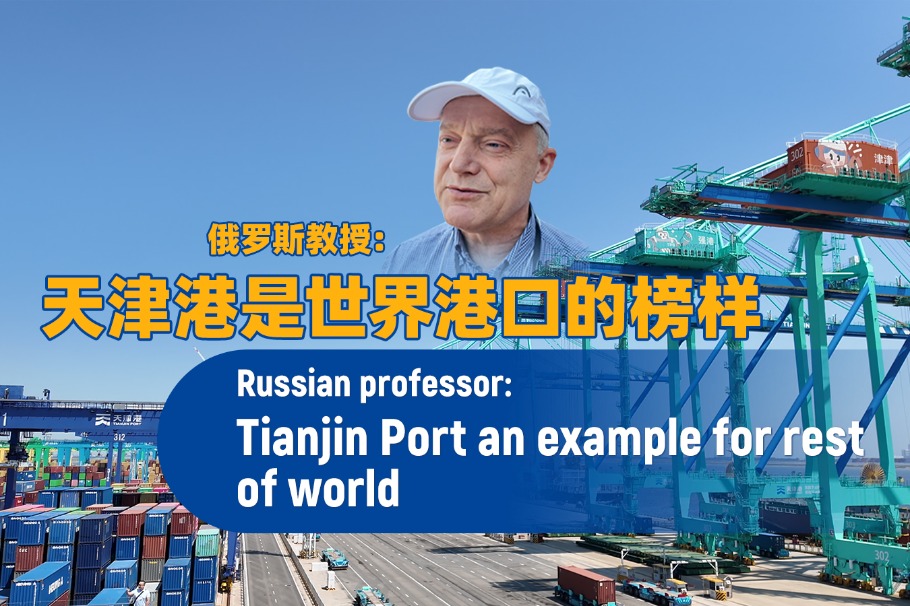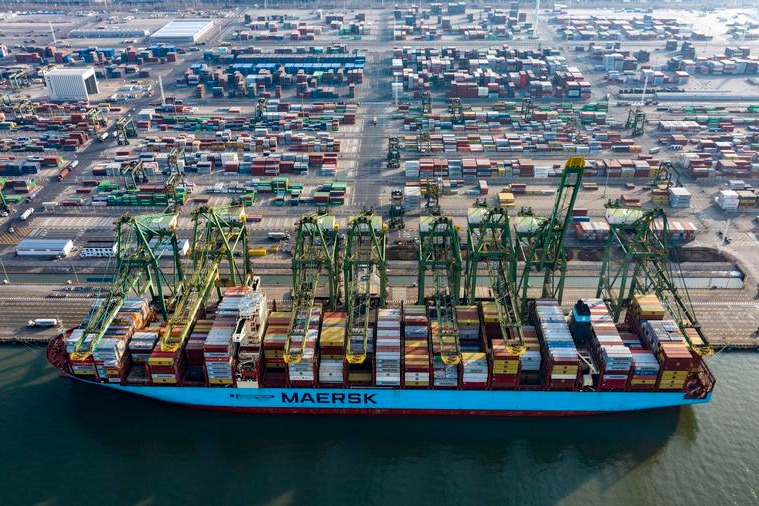Small yards with high walls


The decoupling policy of the Biden administration will be more selective than its predecessor's
The "decoupling policy" implemented by the Donald Trump administration has affected every aspect of Sino-US relations, and brought severe impacts to the previously closely connected bilateral ties. In addition, the COVID-19 outbreak that has engulfed the world has further aggravated the situation. By and large, the decoupling policy can be evaluated in three aspects.
First, the decoupling policy has failed to achieve the original goal.
In terms of bilateral trade, since 2019, China's exports to the United States have increased after a period of decline. In the third and fourth quarters of 2020, China's exports to the US recovered strongly, with year-on-year growth of 17.6 percent and 34.3 percent respectively.
The steep tariffs imposed by the US on Chinese goods were the main reason for the severe decline in Chinese exports to the US in the initial stage of the trade disputes. However, since it is difficult for the US to end its dependence on Chinese goods in the short term, most US companies would rather absorb the tariffs by themselves.
In terms of investment, two-way direct investment and venture capital investment have slumped since the US began to implement a much stricter foreign investment screening system. The US' decoupling policy has injected greater risks into the capital flows between China and the US. But it has not stopped the flows completely.
Second, the US' attempted containment of China's high-tech development not only suppresses the development of Chinese companies such as Huawei, but also hurts other market players. Companies such as Qualcomm and Advanced Micro Devices, which are important suppliers of chips to Huawei, have suffered losses. The Semiconductor Industry Association said that the ban on supplying Huawei caused serious damage to the US' semiconductor industry. According to a survey of the Boston Consulting Group in 2020, the US will lose 8 percent of its global share in the industry and 16 percent of revenues if the ban is maintained at its current level.
Besides, suppliers in Japan, the Republic of Korea and other places have also been greatly affected. The global "chip shortage" since the end of 2020 is directly related to the US government's rash interference in the global semiconductor supply chain. In the field of 5G communications, the US' violation of market rules and forced exclusion of Huawei in international markets will have a huge negative impact on the development and spread of global information and communication technology.
Third, the US' decoupling policy toward China has incurred widespread worries among experts on China in the US. In July 2019, five experts, including Taylor Fravel from Massachusetts Institute of Technology, J. Stapleton Roy, former US ambassador to China, Michael D. Swaine from Carnegie Endowment for International Peace, jointly published an open letter on The Washington Post website titled "China is not an enemy", which pointed out that it would damage US international role and reputation as well as the economic interests of other countries if the US targets China as an enemy and tries to decouple China from the global economy. They called on the US government to adjust its decoupling policy. Nearly 100 scholars and business leaders in the US signed the letter.
Starting from January 20 when Joe Biden took office, "Build Back Better" and rebuilding US global leadership have been set as the focuses of US' domestic and foreign policies. In terms of the administration's China policy, President Biden, Secretary of State Antony Blinken and other key administration officials have all continued to emphasize the strategic competition with China. China is still portrayed as "a threat "in the current US political context.
On April 21, the US Senate Foreign Relations Committee passed the Strategic Competition Act of 2021.All-out competition with China has become a rare consensus in the deeply divided US Congress, and the US domestic and foreign environment that triggered the Trump administration's decoupling policy has not changed.
Given that any policy of the Biden administration toward China will be based on the realities of domestic affairs, it can be expected that the Biden administration will continue the decoupling policy initiated by the previous administration.
In the future, it is highly likely that the Biden administration will adopt a tough stance toward China in economy and trade, and push for the reshoring and reshaping of some key industrial supply chains. The Biden administration will develop a comprehensive China strategy to cope with what the Office of the United States Trade Representative's Trade Agenda 2021 identifies as China's "unfair economic and trade practices".
As to the key areas and industries that the Biden administration intends to revitalize domestically, on April 12, the White House held the "CEO Summit on Semiconductor and Supply Chain Resilience "and invited 19 chief executive officers from major technology enterprises. After the summit, legislation was initiated authorizing $50 billion to support the US semiconductor industry, which was approved by Congress.
The high-tech sector will continue to be the focus of the US' decoupling policy toward China. The competition between China and the US in the high-tech sector has just started, and halting the flow of key technologies and talents to China will be at the heart of the policy. However, the Biden administration recognizes that indiscriminately cutting itself off from Chinese technology, people and capital would entail enormous risks and costs.
Some of the decoupling policies of the Trump administration, which met considerable resistance in implementation, were criticized by the US' technology and business communities for being too extensive. The decoupling policy of the Biden administration will be more "selective" and focus on some key industries and fields. The Biden administration is more likely to adopt a "small yards with high walls" strategy, resolutely implementing a decoupling policy in key technology sectors, while, in noncritical sectors, more exchanges will be allowed.
The author is an associate researcher with the Department for International Strategic Studies at the China Institute of International Studies. The author contributed this article to China Watch, a think tank powered by China Daily. The views do not necessarily reflect those of China Daily.

































